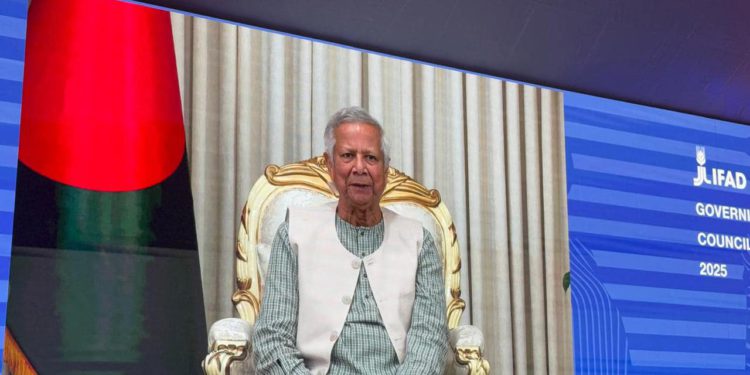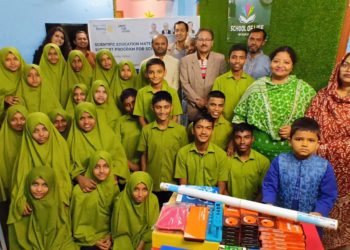BSS- Chief Adviser Professor Muhammad Yunus today called upon the international community to engage with the ‘new Bangladesh’ that emanated from the uprising led by the students and youth folk against an oppressive regime and discrimination.
He made the call in his keynote speech at the 48th Session of the Governing Council of International Fund for Agricultural Development (IFAD).
The prerecorded video speech of the Chief Adviser was broadcast in the event at IFAD headquarters in Rome, according to a message received here.
While congratulating IFAD for its contribution to reducing global poverty and inequality, the Chief Adviser recalled IFAD’s four decades of association with Bangladesh, especially in the agriculture and climate sector.
He appreciated IFAD-supported projects that particularly empower the rural women in Bangladesh.
Prof Yunus referred to his concept of ‘Social Business’ as a new dimension to rural development which creates a virtuous cycle where businesses thrive by addressing the needs of the community, thereby fostering long-term development.
He drew a parallel between IFAD’s effort and the vision 3-zero world- zero poverty through non-wealth concentration, zero unemployment and zero net carbon emissions.
Prof Yunus called upon the Governing Council of IFAD to invest more in climate-resilient infrastructure, sustainable agricultural practices, and renewable energy solutions so that rural communities can thrive in harmony with the environment.
He asked the Member States of IFAD to seize opportunities for the most vulnerable and build a better world where no one is left behind.
The Chief Adviser also called upon the leaders to engage the youths and students who are the future leaders and change-makers.
“They (youths) have the creativity, innovation and passion to make a better world for all,” he said.
Dr Salehuddin Ahmed, Advisor for the Ministry of Finance and the Ministry of Science & Technology, attended the council meeting as the governor of the IFAD governing board and represented Bangladesh.




















